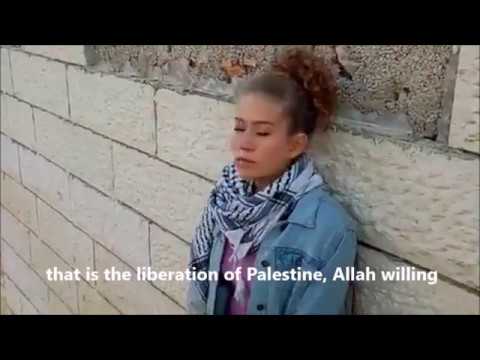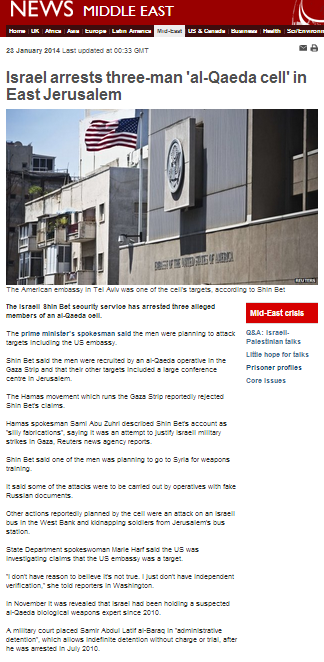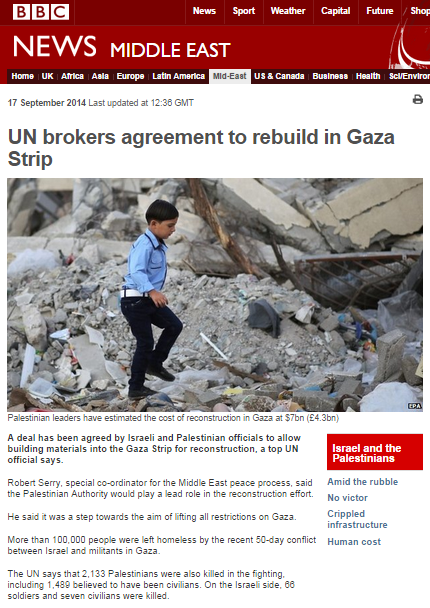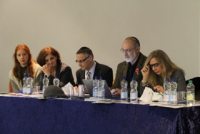On February 13th the BBC News website published an article titled “Ahed Tamimi: Palestinian viral slap video teen goes on trial” which was presented to audiences together with two items of recycled ‘related reading’: a highly problematic filmed report by Jeremy Bowen dating from January 31st (also embedded in the report itself) and a written report by Yolande Knell from January 17th.
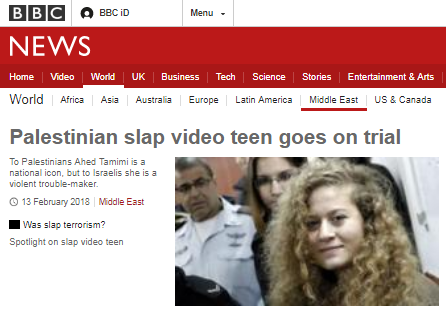
Readers were told that:
“A Palestinian teenage girl filmed slapping an Israeli soldier has gone on trial in an Israeli military court in a case which has split public opinion.
Ahed Tamimi, 17, is charged with 12 offences, including assaulting security forces and incitement to violence.
If convicted, she could face a lengthy jail term.”
However, as has been the case in the majority of the BBC’s copious past reporting on Ahed Tamimi’s arrest and indictment, this article too failed to provide readers with details of her call for violence on social media which is the basis of that incitement charge.
Given the article’s title and introductory paragraphs, readers of its first version may have been surprised to find that it actually told them nothing at all about the trial itself. The report’s original text did not clarify that the trial was closed to journalists and the only reference to that was found in a photo caption saying that “the trial is being held behind closed doors”.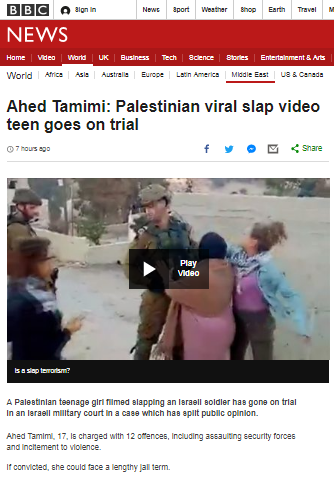
Later on the article was amended to reflect the judge’s decision:
“Journalists waiting to report on the trial were ordered to leave by the judge, on the grounds that the accused was being treated as a minor. Such cases are usually tried in private.
But in Ms Tamimi’s case, this went against the wishes of the family.”
Three paragraphs were devoted to a statement given to journalists by Tamimi’s lawyer.
What BBC audiences did find in this eleventh report on Ahed Tamimi in less than two months was repetition of information seen in previous reports and further amplification of partisan messaging.
“For Palestinians, Ms Tamimi is a symbol of resistance to Israeli occupation, but many Israelis regard her as a violent troublemaker seeking publicity.”
“For Palestinians, Ahed Tamimi has become a national icon for what they see as acts of bravery in standing up to armed soldiers on occupied land.”
Readers also found uncritical amplification of messaging from a political NGO which has been campaigning on Tamimi’s behalf.
“Amnesty International has called for Ahed Tamimi’s release, accusing Israel of discriminatory treatment of Palestinian children.”
The BBC even promoted a link to Amnesty International’s relevant campaign webpage.
“Human rights groups say Ahed Tamimi’s case highlights what they say is Israel’s harsh treatment of Palestinian minors.
About 1,400 Palestinian minors have been prosecuted in special juvenile military courts over the past three years, the IDF says.
Civil rights groups are very critical of the Israeli system, saying it lacks fundamental protections and gives no guarantee of a fair trial.”
BBC editorial guidelines on “controversial subjects and linking” state:
“Where BBC online sites covering ‘controversial subjects’ offer links to external sites, we should ensure that the information on those external sites, taken together, represents a reasonable range of views about the subject.”
In addition to that link to Amnesty International’s campaign page the article also included a link to Ahed Tamimi’s mother’s Facebook account and two links to articles on Israeli news sites – neither of which provides the required “reasonable range of views” on the “Israeli system”.
While Amnesty International was presented as a “civil rights” group, no mention was made of the relevant issue of the NGO’s long record of anti-Israel campaigning and its previous sponsorship of a speaking tour in the US by Ahed Tamimi’s father. Readers were not provided with any alternative views of the allegations levelled in AI’s political campaign supporting Tamimi.
This non-event of an article once again makes it blatantly obvious that the supposedly ‘impartial’ BBC has elected to lend its voice and outreach to promotion of a blatantly political campaign.

